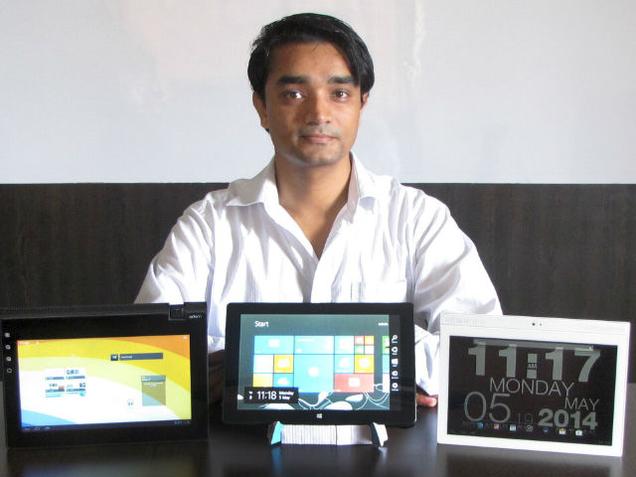
Eve can be used for everything from asteroid mining to scanning the depth of the oceans for exotic creatures.
Rohan Shravan, whose company Notion Ink is making Eve, a personal computing robot that understands the needs of its users and can fly like a drone, says this will be the first time artificial intelligence will itself be an operating system, rather than just being part of it, as was the case with Siri or Google Now.
Siri is a personal assistant that works on Apple’s mobile operating system iOS and Google Now works on Google’s Android platform.
Spending on robots worldwide is expected to more than quadruple from just over $15 billion four years ago to about $67 billion by 2025 — a 10.4 per cent compound annual growth rate since 2010, says a study by the Boston Consulting Group. The personal segment, which includes robots used for entertainment, cleaning, education, security, and household applications, is projected to grow the fastest, at a compound annual rate of 15.8 per cent, rising from $1 billion to $9 billion during that period.
Eve will be able to communicate with other smart devices, record every second of what it sees, and store humungous amounts of data. Mr. Shravan says Eve can be used for everything from asteroid mining to scanning the depth of the oceans for exotic creatures.
He bootstrapped Notion Ink with personal savings of about Rs. 6 lakh and used the facilities of B.V. Raju Institute of Technology (BVRIT) in Hyderabad, where his firm got incubated. Most of his initial employees were final year students, who, he says, were later poached by multinational companies. When he told venture capitalists that his product Adam would be a challenger to Samsung and Apple, they laughed at him, he says.
“They told me that ‘you are not going to survive even for six months’,” says Mr. Shravan, who quit his job at Schlumberger, the world’s biggest oil-services company, to launch Notion Ink in 2009.
For a while, their scepticism seemed well founded. Notion Ink ran into huge problems. Google came up with its own operating system, Honeycomb, but restricted access to players such as Motorola. Notion Ink’s other partner Nvidia Corp, a maker of chips for computer graphics cards, which used Honeycomb, also discontinued support. This had a drastic impact on Notion Ink, whose tablet was based on Google’s Android platform.
Mr. Shravan then tied up with U.S. chip-maker Texas Instruments for hardware support. In 2012, Texas Instruments announced it was winding down operations in smartphone- and tablet-oriented chips. Notion Ink had to start all over again.
Then, last year, things started looking up for his firm. Two of the world’s largest tech companies, Microsoft and Intel, formed a partnership with the firm to provide their chips and software, respectively, to Notion Ink’s touch-enabled computing devices.
Mr. Shravan now sells the devices directly to 30 large enterprises, competing alongside Dell and Toshiba.
Notion Ink is now re-entering Apple’s home turf, by selling its Cain tablet in the U.S. market.
Former Infosys Director and Chairman of Manipal Global Education Services T.V. Mohandas Pai says, “People in India need to learn how to market their products.” Also, he says, “India produces good engineers, but it is important for them to make hardware products intuitive and attractive in terms of design.”
source: http://www.thehindu.com / The Hindu / Home> S&T> Technology / by Peerzada Abrar / Bengaluru – June 21st, 2015